By Tess Stuber
The sounds of slamming doors, stomping feet, and angry voices rang in John Huynh’s ears as he stuffed just his phone and his wallet of only a few bills, into the pocket of his pyjama pants.
His feet tried to catch up with his racing heart as he swiftly left the front door for the relative safety of a nearby Subway restaurant in the summer of 2018.
Toronto police arrived in response to Huynh’s 911 call and held him for lengthy questioning. The frightened 22-year-old answered with hot tears still streaming down his face.
He had become accustomed to the feeling of fear while living with his family.
“I really didn’t like living at home for my whole life. I never felt safe anywhere. And I had nowhere to go to feel safe,” now 24-year-old Huynh explained. “Even if I lock the door in my room, my dad would just find another way in, like breaking the door down.”
He spent this first night alone at an adult homeless shelter in Toronto. There, they sleep like sardines on mats that sit roughly a foot apart, surrounded by the thick musk of multiple days, perhaps weeks, of unwashed bodies in the Toronto summer.
The next night he found what would soon become his first real home, at Horizons for Youth.
Horizons for Youth is a homeless shelter in the York region of Toronto that provides emergency housing and life skills programming. There are 45 beds at the shelter open to any person aged 16-24.
In 1994 the shelter opened to fill a great need for youth housing in Toronto. Since then, Horizons has continued to grow and expand its programming whenever funding is available.
When Huynh walked through the doors at Horizons for Youth he didn’t know what to expect. Most residents at Horizons for Youth know nothing about it before they arrive. Like Huynh, most residents are referred to Horizons by another organization, like child protective services, schools, or the adult shelter where Huynh was staying.
He was greeted first by the staff in the office who buzzed him through the doors. He sat down with one of the case managers to talk about why he was there and what he needed.
Every client that comes to Horizons receives a case plan and must be following their plan in order to stay in the shelter.
“[The plans are] very much based on where the youth are,” said Development Coordinator, Stacey Murie. “Some of our youth come in severely traumatized and just getting out of bed is enough for them to do and just go through the motions of the day. Or some of our youth, they come in, they’re working and they’re going to school and so their case plan looks a little bit different.”
In addition to emergency housing, Horizons provides mental health and life skills programs such as healthy eating workshops, employment workshops, physical activities, and more throughout the day that prepare youth to enter the world on their own.
Most residents interact with the shelter’s mental health program at some point whether it’s during a wellness workshop or meeting with one of the on-site psychiatrists, said Murie.
The Life Skills program, which includes workshops for things like cooking, finance management, and job searching, runs every weekday and is open to all youth regardless of whether they’re staying at the shelter.
“It’s great to be able to get youth off the street and give them a bed, but unless you’re giving them mental health support, employment support, they’re not going to get out of the cycle of homelessness,” said Murie.
All grant funding goes towards these programs, but grants are only a small part of the shelter’s funding. Roughly 68 per cent of the shelter’s funding comes from the city, about seven per cent comes from the United Way, and the rest is through donations, grants, and fundraisers, said Murie.
Part of these funds went toward a field trip that Huynh now regards as the “best time of [his] life.”
It was the summer of 2018, after Huynh had been staying at Horizons for Youth for a few weeks they took a three-day camping trip to Haliburton Ontario.
Never before had he eaten so much good food at once. Pizza. Hamburgers. French Fries. Fruit salad.
They toasted marshmallows around the bunsen burner sized blue flame. The dry summer meant a ban on campfires but they didn’t mind cooking over the small can. They were too excited about all the kayaking and swimming they did that day to care.
“It made me really happy back then because it proved to me that I was worth caring for and that I was worthy of receiving all the love that I was showered with here,” Huynh said.
Huynh now lives in a transitional housing home called Youth Link, which provides him with a place to stay, free of cost, as long as he follows the success plan he created upon arrival.
In 2017 Huynh was a third-year Ryerson student, working as a software developer intern for the university. His toxic living conditions made it impossible for him to be successful at school, ultimately forcing him to drop out.
Now that he has the support he needs he is working as a software developing consultant, pursuing a self-taught passion for coding that he found in high school.
“I never would be working this far in my career (without Horizons), I might not have ever been able to get into my career at all,” Huynh said reflectively.

Horizons for Youth recieved a shipment of new beds for all 45 residents that the shelter houses on Wed. February 19, 2020. (Tess Stuber/T•) 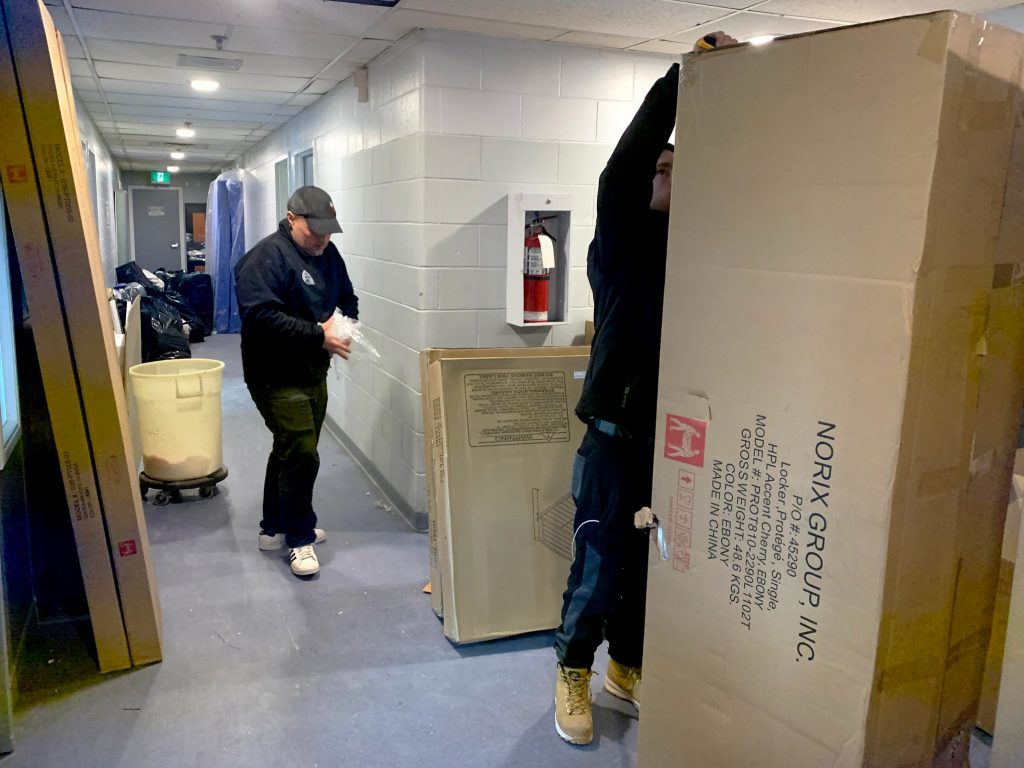
You Move Me moving company unpacked new beds and lockers for every room. (Tess Stuber/T•) 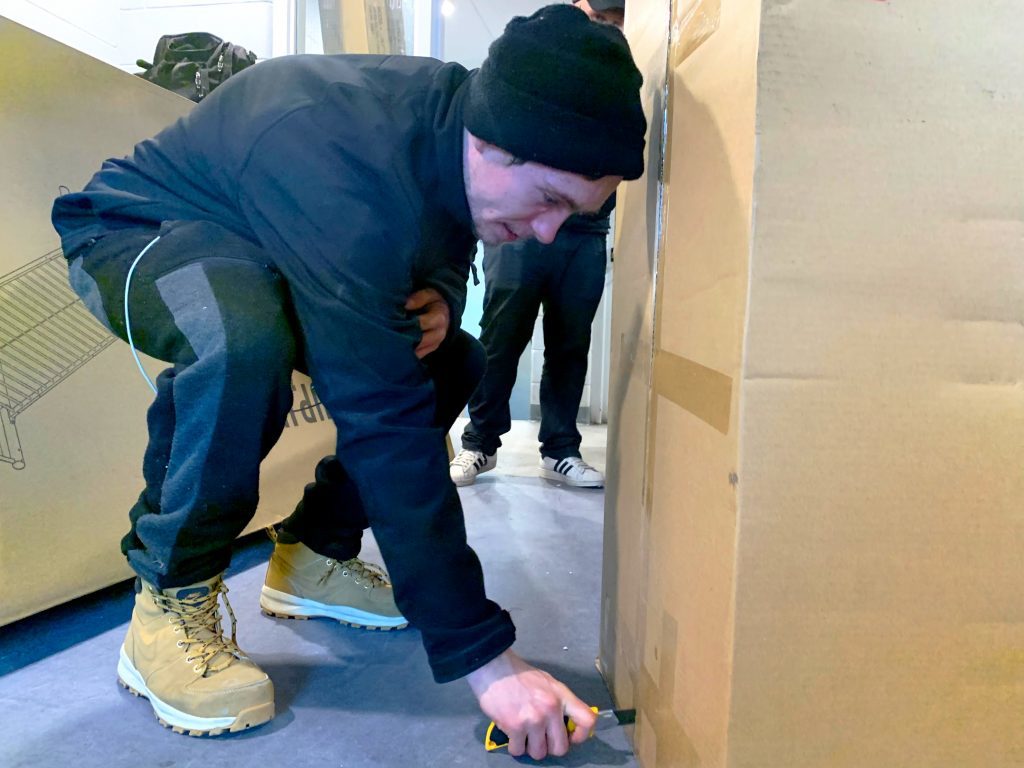
One of the moving men cuts open a box of new lockers for the Horizons for Youth residents. (Tess Stuber/T•) 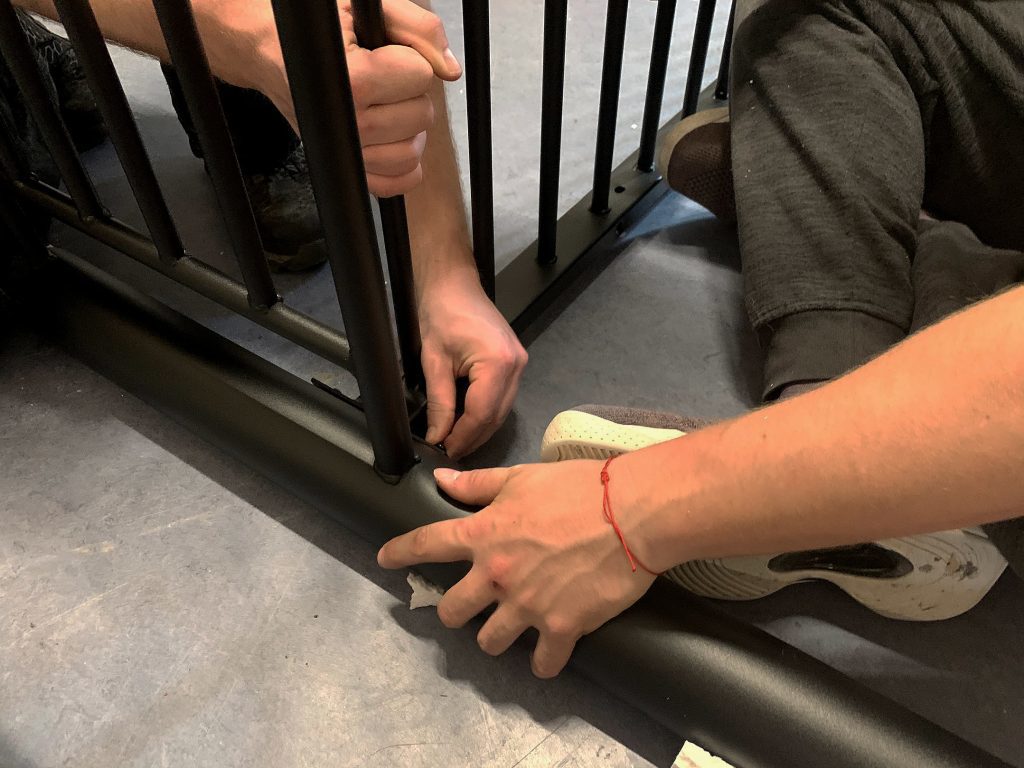
The beds were assembled over the course of three days where the residents had to move their belongings into the halls. (Tess Stuber/T•) 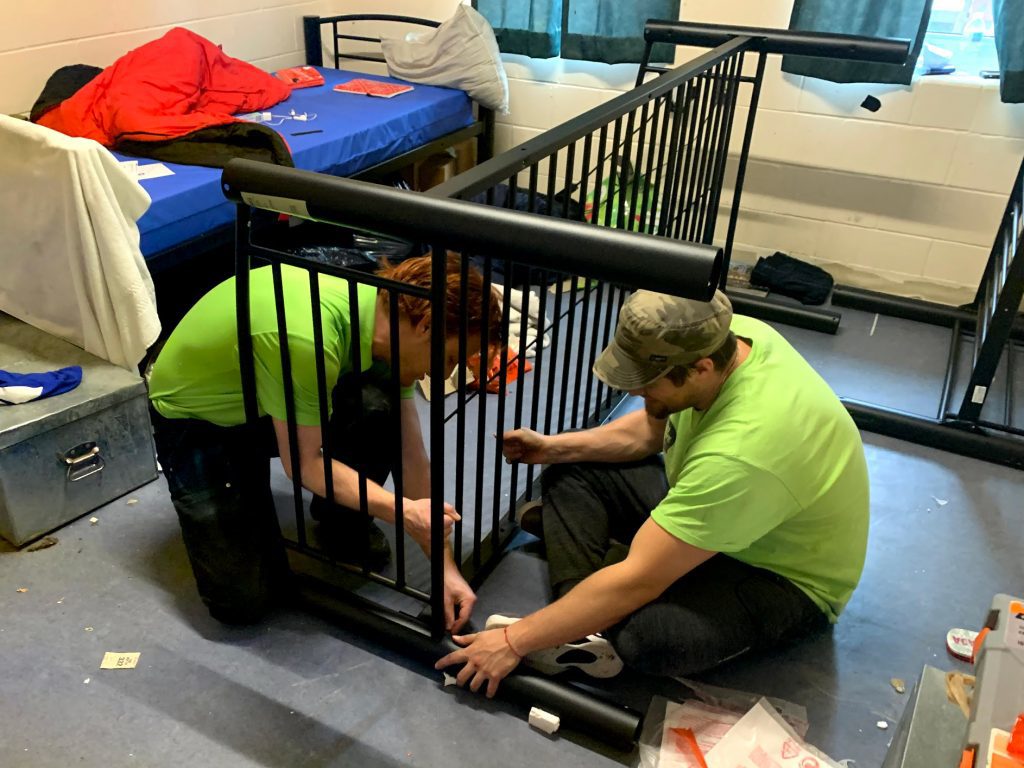
Two moving men assemble the bottom bunk of a new bunkbed set on Wed. February 19, 2020. (Tess Stuber/T•) 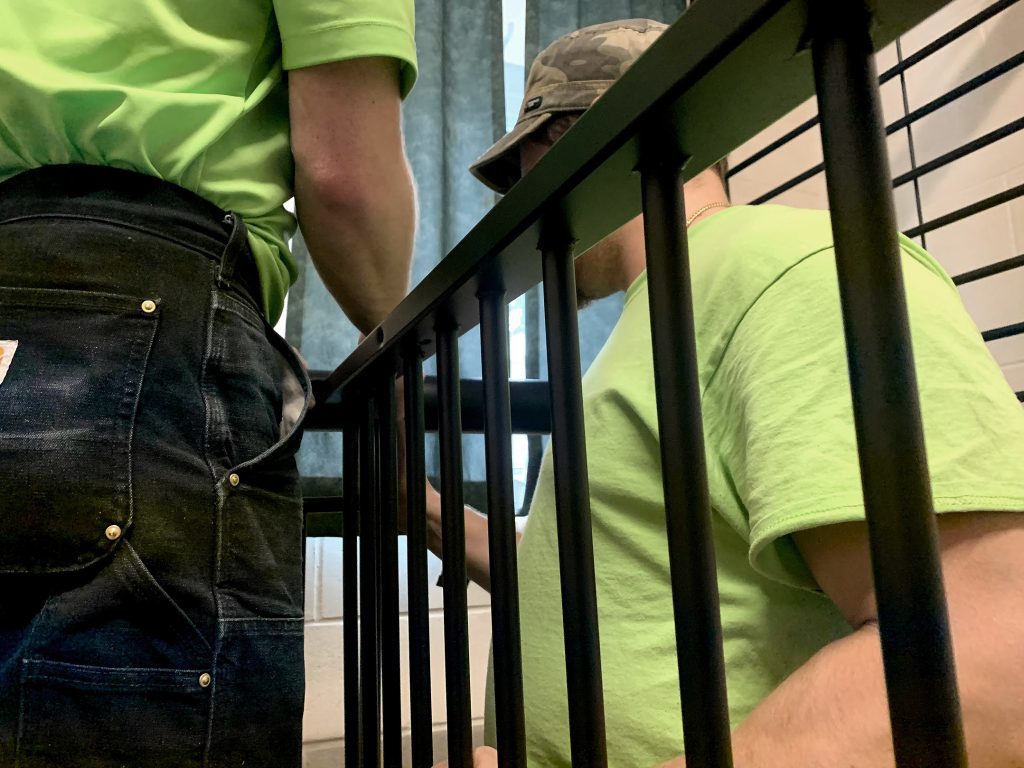
You Move Me moving team assembled new beds for Horizons for Youth on Wed. February 19, 2020. (Tess Stuber/T•) 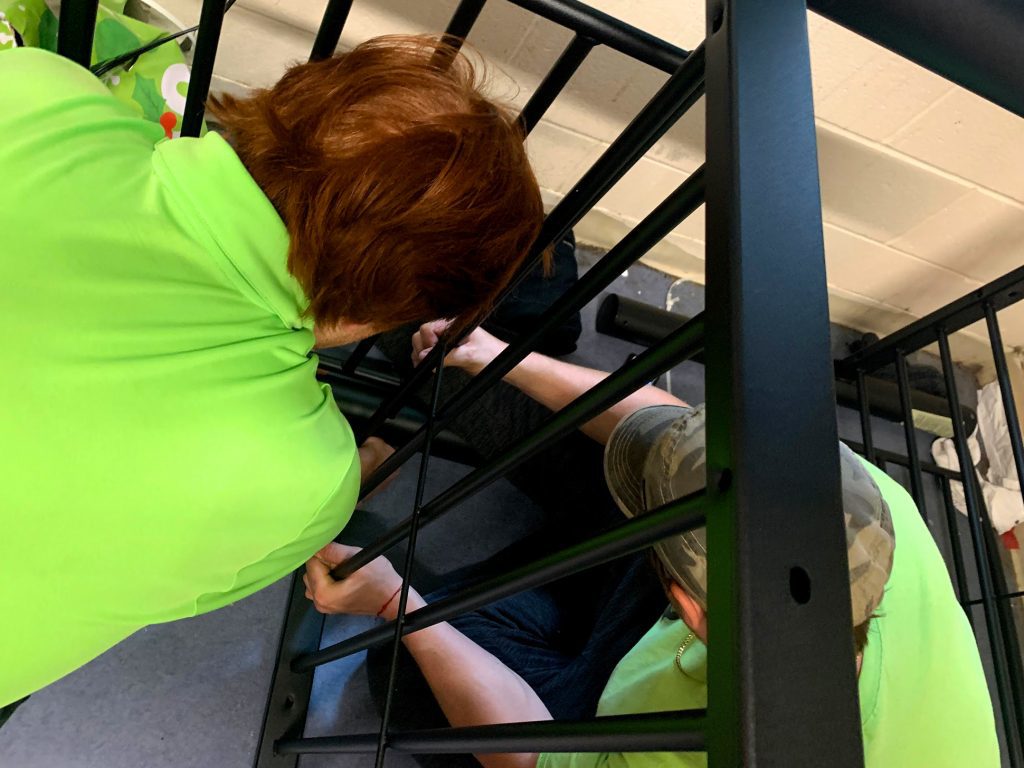
You Move Me moving team assembled new beds for Horizons for Youth on Wed. February 19, 2020. (Tess Stuber/T•) 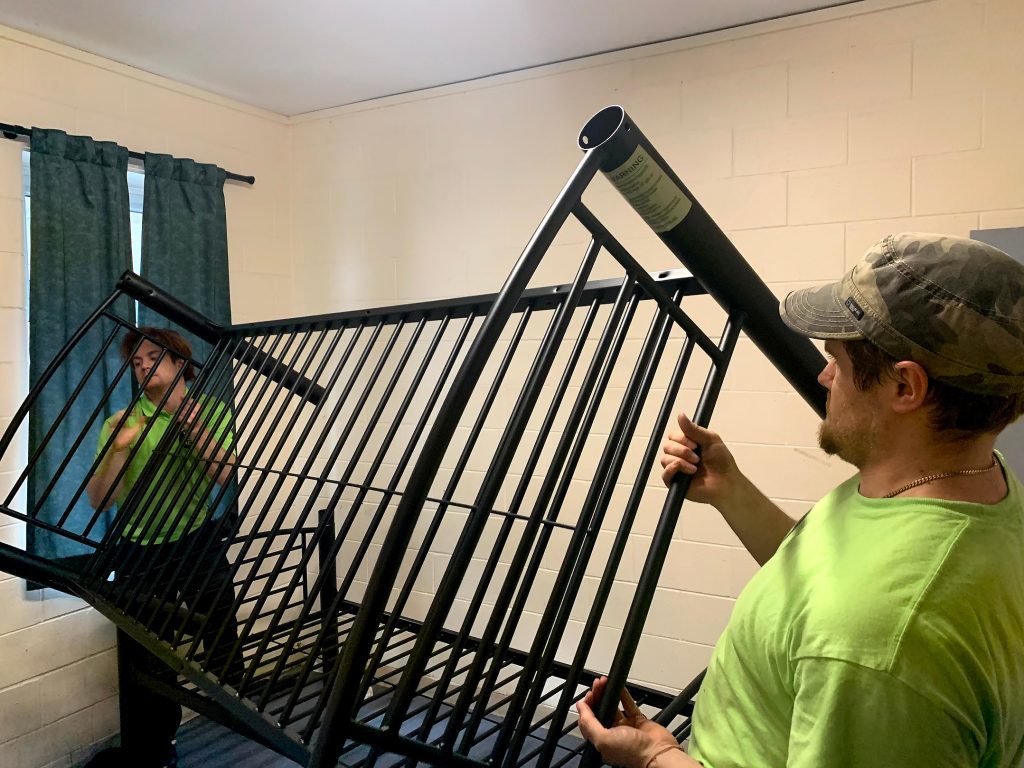
You Move Me moving team assembled new beds for Horizons for Youth on Wed. February 19, 2020. (Tess Stuber/T•) You Move Me moving team assembled new beds for Horizons for Youth on Wed. February 19, 2020. (Tess Stuber/T•) You Move Me moving team assembled new beds for Horizons for Youth on Wed. February 19, 2020. (Tess Stuber/T•) 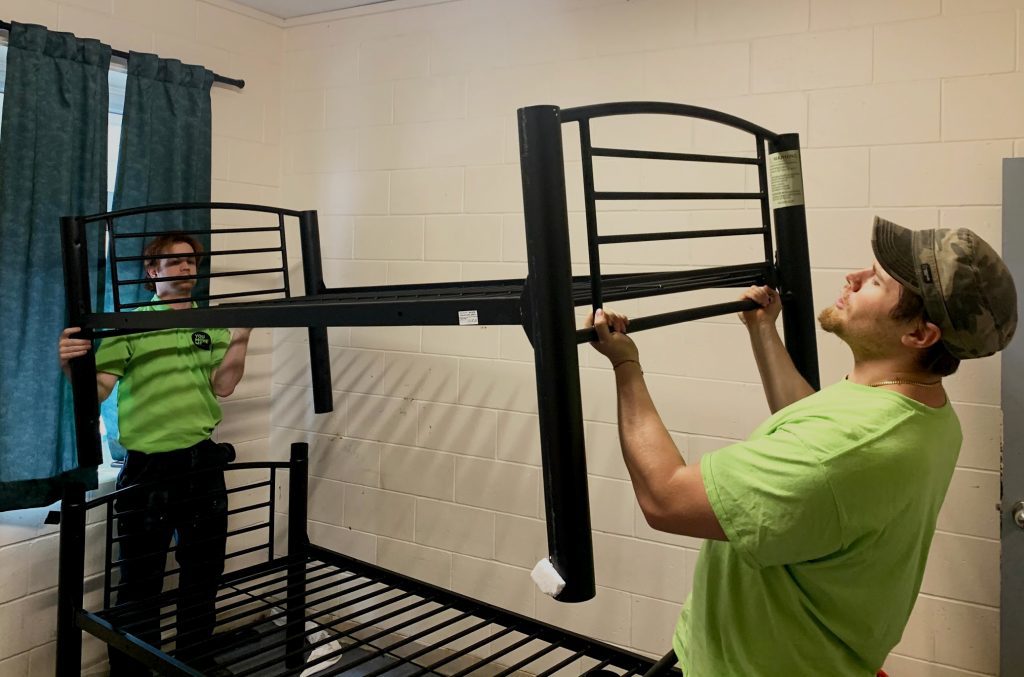
You Move Me moving team assembled new beds for Horizons for Youth on Wed. February 19, 2020. (Tess Stuber/T•) 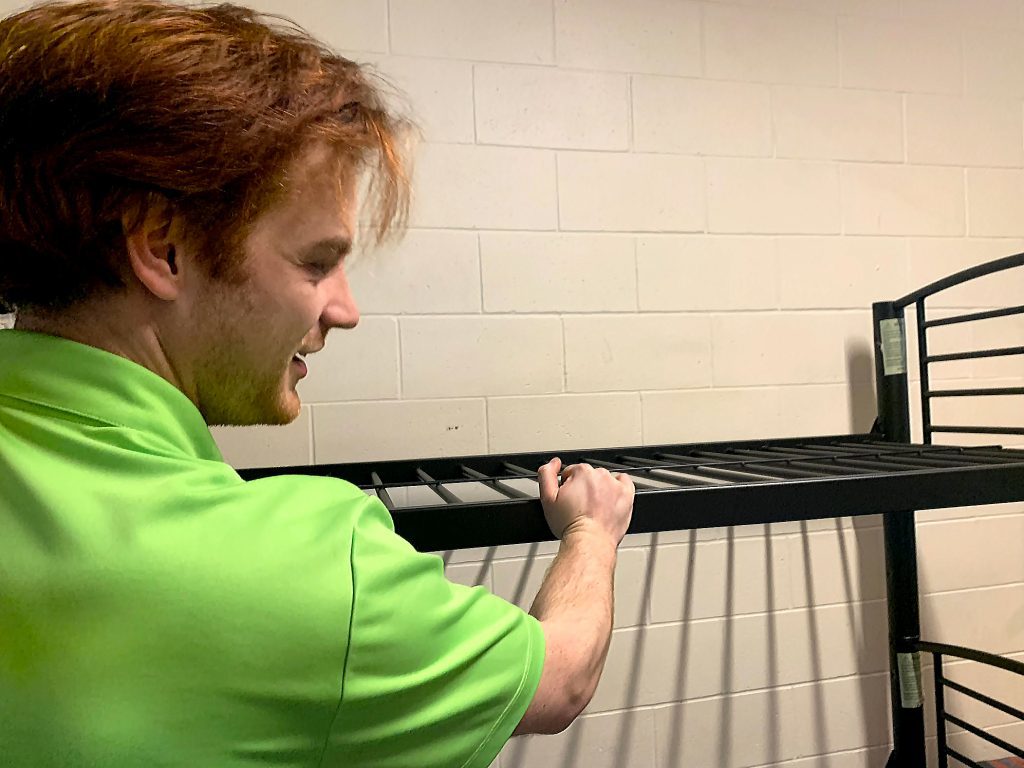
You Move Me moving team assembled new beds for Horizons for Youth on Wed. February 19, 2020. (Tess Stuber/T•) 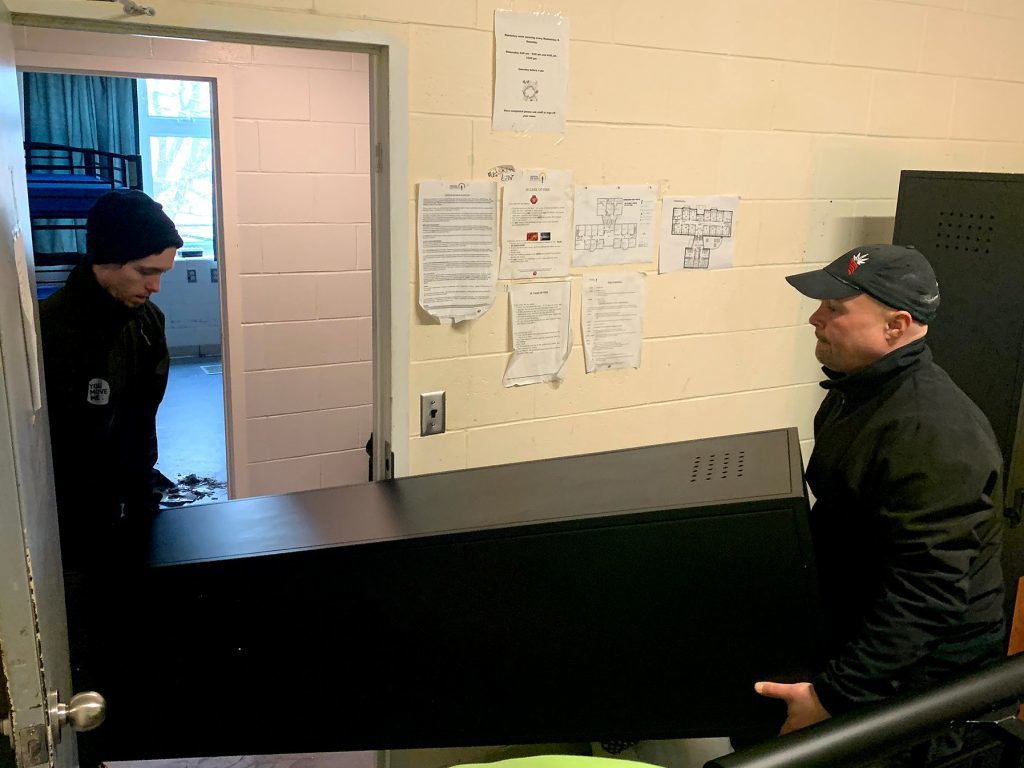
Two men from You Move Me moving company bring a new locker into one of the residents rooms at Horizons for Youth on Wed. February 19, 2020. (Tess stuber/T•) 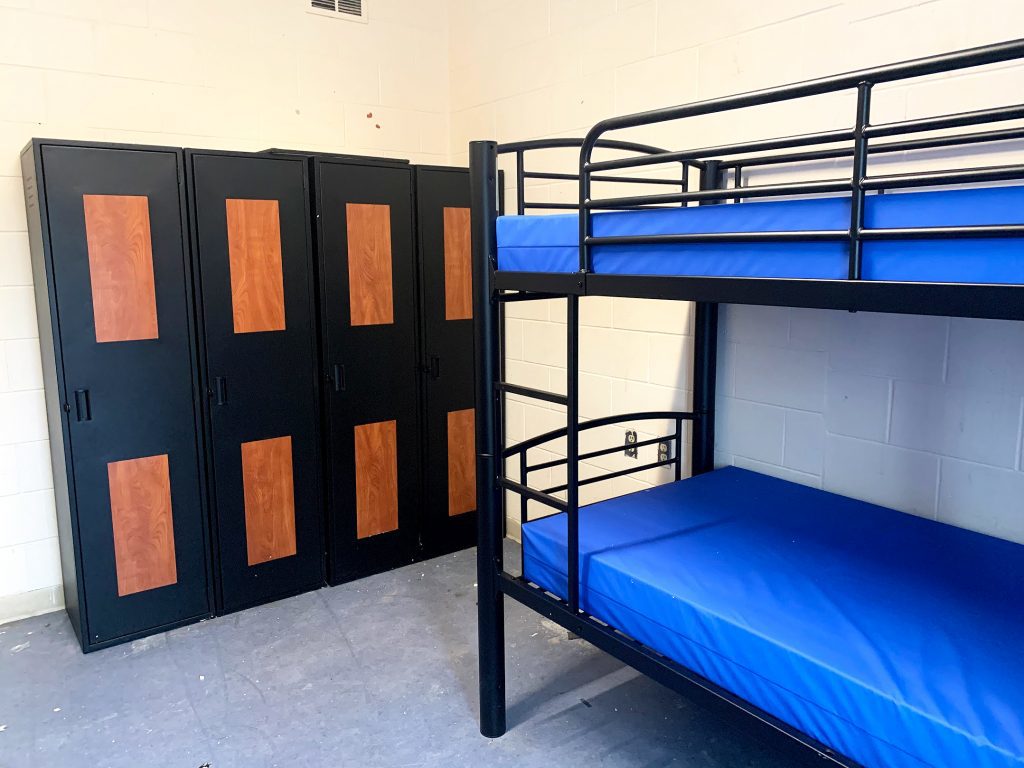
Every resident at Horizons for Youth receives their own bed and locker when they move in. (Tess Stuber/T•)
